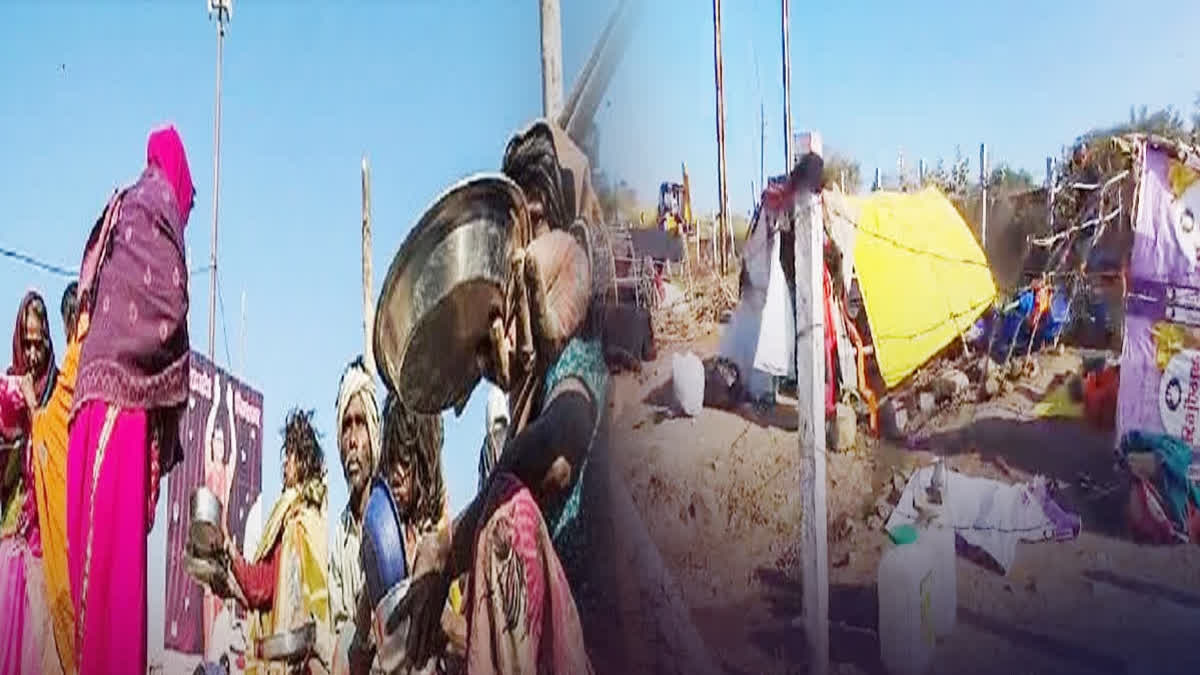Indore: Indore, the cleanest city in India, is set to be beggar-free following a large-scale campaign to ensure those living in penury are rehabilitated and public spaces kept clean and safe.
Begging has been completely banned across the city and even those who offer alms to beggars can face legal repercussions. Led by the Indore district administration, the initiative is part of a broader campaign to rehabilitate beggars.
Under the Smile Yojana, the city administration has implemented a comprehensive strategy to eliminate begging through legal enforcement, public participation, and rehabilitation programs. The district administration announced that it would make the city completely beggar-free on January 1.
Begging Declared a Crime
In a first-of-its-kind move, begging has been declared a crime in Indore under Section 163 (1-2) of the Civil Code 2023 and the Civil Protection Act. The law also penalises those giving alms or buying goods from beggars. District Collector Ashish Singh stated, "This step is essential to prevent exploitation and ensure that our public spaces remain orderly and safe."
Enforcement of these laws is supported by Section 144, which prohibits begging and related activities across the city. Those found violating the law face strict penalties.
Rewards for Reporting Beggars
Under the newly introduced Smile Yojana, anyone providing verified information about beggars at public places or intersections will receive a reward of Rs 1,000. A helpline number, 9691494951, has been launched for this purpose.
Singh explained, "This provision ensures sustained involvement. It helps us identify and assist individuals in need while maintaining the city's beggar-free status."
Rehabilitation Measures
To address the root causes of begging, the administration has undertaken various rehabilitation efforts. Over 354 adults and 45 children rescued from begging have been connected to employment and social reform institutions. "We are not just removing them from the streets, we are giving them a chance to rebuild their lives," said Singh. "They are being connected to skill-development programs and shelters are providing them with daily essentials."
Organised Begging Uncovered
The campaign revealed shocking instances of organised begging. A gang from Rajasthan was found exploiting individuals, while a woman begging at Rajwada's Shani temple was discovered hiding Rs 75,000 under her saree, earned in just ten days. Another beggar was found travelling from Hyderabad with a reserved train ticket.
"These cases highlight how begging has become a business for some. Our goal is to dismantle such operations and rehabilitate genuine individuals in need," the DC said.
Mixed Reactions From Experts
While the initiative has been praised for its ambition, it has also drawn criticism. Senior journalist Abhilash Khandekar noted, "Begging is not a matter of pride for any country. However, the government must ensure proper arrangements for food, shelter, and employment for those removed from the streets."
Senior Gandhian thinker and writer Chinmay Mishra strongly opposed the move, calling it 'inhuman'. He said, "Begging has a historical context in our society. Criminalising it without addressing systematic issues is unjust. These individuals are not criminals, they are victims of circumstances."
Smile Yojana: A National Model
The Smile Yojana is a pilot project under which 30 cities, including Delhi, Mumbai, and Bengaluru, aim to become beggar-free. Nationwide, over 4.13 lakh people are engaged in begging, with Madhya Pradesh accounting for nearly 28,000. In Indore, several high-profile cases revealed beggars earning substantial sums, highlighting the complexity of the issue.
Read More



